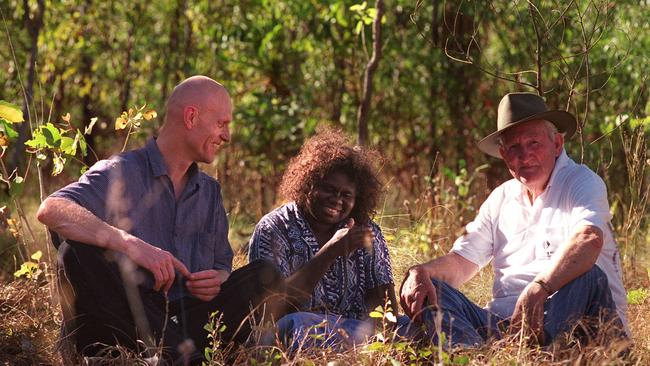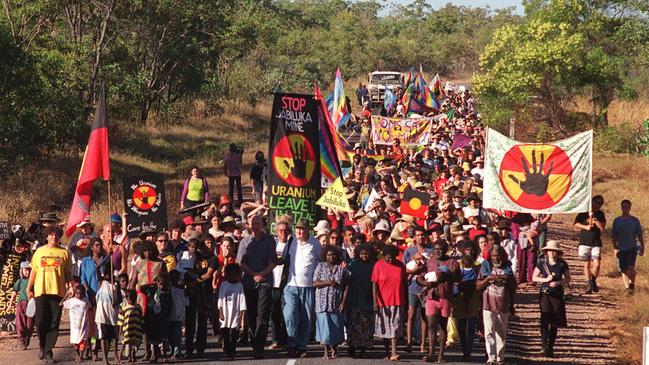Energy Resources Australia’s plan to renew its Jabiluka mineral lease has angered traditional owners
Anger is growing at plans to renew a mineral lease over the Jabiluka uranium deposits which were the centre of an eight-month blockade in the late 1990s.
Energy Resources Australia’s intention to lodge an application to renew the mineral lease at the controversial Jabiluka uranium deposits in the Northern Territory has been attacked by the area’s traditional owners.
The lease expires on August 11 and ERA – of which mining giant Rio Tinto owns about 86 per cent – is seeking a 10-year renewal on the Mineral Lease No.1 (MLN1), which is considered Australia best undeveloped uranium deposit.
It sits on the edge of Kakadu National Park and is a sacred site with hundreds of rock art galleries. The renewal of the mineral lease has been strongly opposed by the local Mirarr Aboriginal people.
The Gundjeihmi Aboriginal Corporation, which represents the Mirarr traditional owners, said ERA had not started discussions with them about an application for an extension of the Jabiluka mineral lease.

They said their primary concern was the “dire financial circumstances” of ERA, which faces a potential $2bn cost blowout to meet the costs of rehabilitation of the former Ranger uranium site 40km from Jabiluka.
“How could anyone consider giving or extending a mineral lease to a company that is $2bn in the red? No other mining company would seriously apply for a mineral lease with this balance sheet,” GAC chief executive Thalia van den Boogaard said.
Jabiluka’s uranium deposits were discovered in the 1970s and the development of a mine became a major political issue, pitting Labor against conservative governments.
In 1998 Midnight Oil front man and later Labor MP Peter Garrett joined the Mirarr in an eight-month blockade of Jabiluka that effectively halted any potential mining of the high-grade uranium deposits. ERA, which is ASX-listed, has been the mineral leaseholder of Jabiluka for more than two decades and signalled its intention to renew the lease more than 12 months ago.
In a statement to the ASX, ERA said the renewal application did not signal the company was proposing to develop Jabiluka. Under the lease and the Jabiluka Long Term Care and Maintenance Agreement between ERA, the traditional owners and Northern Land Council, the site cannot be developed without the prior approval of the Mirarr people.

It said renewing the lease extended the Mirarr people’s control over the Jabiluka deposit, including their right of veto over any future development. It said the agreement was “unprecedented” in Australian mining.
ERA chief executive Brad Welsh, a Muruwari man from northwest NSW, said the renewal of the mineral lease was the best way to protect Jabiluka’s cultural heritage
“ERA has protected the cultural heritage at Jabiluka for almost two decades under a long-term agreement with the Mirarr traditional owners that also includes a veto right over any future development,” Mr Welsh said.
“The agreement and veto right only remain in place if the lease is renewed.
However, senior traditional owner Yvonne Margarula said they could not trust ERA.
“Right up until 2020 they said they would have Ranger all cleaned up by January 2026. Now they say they don’t know how long it will take,” Ms Margarula said. “We can’t trust this company. Soon they will have nothing left.”
The Long-Term Care and Maintenance Agreement was entered into in 2005. ERA said it has upheld this agreement since it was signed, and the agreement had protected the cultural heritage of Jabiluka for almost 20 years.






